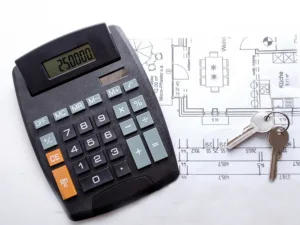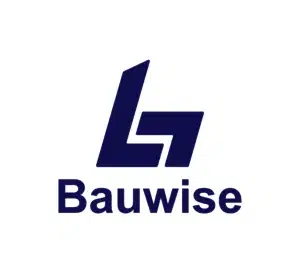Navigating the complexities of cost tracking and risk management while staying within the construction project budget is a massive challenge in the construction industry. Implementing effective cost-control strategies for these tasks is critical to delivering the project on time and within the approved budget.
Optimizing construction cost management procedures is critical to achieving favorable project outcomes. This optimization touches on different facets of the project cost management plan, including the bidding stage, managing change orders, increasing team productivity, tracking costs, and ultimately impacting the project’s success and profitability. This guide covers the basics of the construction cost management process, explores its importance, improvement strategies, and how establishing robust processes can pave the way for project success.
Table of Contents
What is Construction Cost Management?
Construction cost management is basically about keeping the project’s total cost within budget to prevent it from negatively impacting profit margins. This involves establishing a budget framework for all project costs and monitoring expenditures to ensure they align with planned costs throughout the project.
This process is an integral part of every phase of the project, including planning and design, cost estimating, managing on-site specialty contractors, handling change orders, and achieving the desired quality of the finished product. Effective construction cost management is critical not only to the project’s financial health but also to maintaining the team’s reputation for proactive and accurate construction budget forecasting and adherence.
At the heart of successful construction cost management is the implementation of robust construction cost control systems to ensure that a construction project is completed within the agreed budget and scope, thereby ensuring financial efficiency and project success.
Challenges of Ineffective Cost Management in Construction
A study by consulting titan KPMG revealed that only 31% of construction projects in 2015 managed to stay within 10% of their budgeted costs. Traditionally, the construction industry, among others, has relied on analog methods like Excel for budget tracking. However, these approaches often result in isolated systems that separate construction cost management and change order processes from the broader scope of project information.
Such isolation in construction cost management systems amplifies the potential for errors due to various issues. These problems can range from redundant efforts and the cumbersome data transfer between accounting systems to the team’s inability to access up-to-date data. Consequently, this leads to a disjointed construction cost management approach, causing inefficiencies, unnecessary expenditures, unexpected construction costs elsewhere, and a significant waste of resources.
Here is a research document about factors effecting the cost management in construction projects.
How to Improve Construction Cost Management: 6 Strategies
There are many resources available to strengthen cost management in the construction industry, including innovative technologies, platforms, and strategies tailored for each stage of the construction project life cycle. Explore these six strategies to improve your construction cost management techniques:
1. Use a construction management platform
In the rapidly evolving construction industry, leveraging technology has become essential for cost control and financial oversight. Implementing construction management software is a transformative approach to streamlining project management workflows. This software combines critical aspects such as construction budget, project costs, contract management, payment applications, and change orders into a single system. Such consolidation reduces risks and gives stakeholders a real-time view of the project’s financial health.
Using connected construction project management solutions that integrate construction data and processes throughout the project lifecycle—from design to operations—ensures teams are equipped with the latest and most accurate cost information. Whether on the job site on-site or in the office, access to up-to-date construction cost baselines and data is invaluable for making informed decisions.
A well-chosen construction management software offers several significant advantages for controlling project costs. It is a single source of truth for project budgets, aggregating cost-related data in one easy-to-access location. This centralization of project cost control is further enhanced by the platform’s ability to support customizing budget codes, hierarchical structures, and segmentation options to meet specific project needs.
Another important advantage is the improved visibility it provides. Thanks to cloud-based project management systems, team members can access the project’s financial status in real-time. This visibility enables a holistic view of all budget items and contracts, providing a clear picture of each element’s revenue, costs, forecasts, and variances.
Security is also an essential feature of construction management software tools. These platforms allow you to create user rights, ensuring only authorized personnel can access critical project information. This level of security protects sensitive data and ensures that information is used efficiently and responsibly.
Implementing construction project management software can be a game-changer for construction projects by monitoring risk, providing unparalleled financial management insights, operational efficiencies monitoring risk, and project data protection.
2. Create accurate cost estimates from the beginning
Having accurate cost estimates from the start of a project is critical to its success. Inaccurate estimates jeopardize the chances of winning competitive bids, reduce profit margins, stay on project schedule, and seriously damage a company’s reputation. The task of producing accurate estimates is fraught with challenges. One of the main difficulties arises from cost variance among the multiple material sources, which may offer different prices, quality, and availability. This variability complicates the estimation process, making it more challenging to forecast overhead costs accurately.
Another major challenge is the time it takes to consider every project detail. Construction projects are inherently complex and involve countless variables, from labor and material costs and equipment rentals to material costs and contingencies. Ensuring that each element of the construction project is thoughtfully and accurately priced is a huge task that requires thoroughness and careful attention to detail.
These challenges underscore the importance of developing and following a robust cost estimation process. A careful approach to evaluating construction costs that consider the multifaceted nature of construction projects and the variability of material sources is very important. By prioritizing accuracy during the actual cost assessment phase, construction companies can better position themselves to manage construction costs more effectively, maximize profits, maintain profitability, and maintain their reputation for reliability and excellence in the competitive construction industry.
3. Track construction project budget items in real-time
Real-time tracking of budget items is crucial for maintaining financial control in construction projects. Connected construction tools provide immediate insights into the construction project’s financial status by monitoring budget changes and cost factors as they occur. This real-time visibility aids in accurate forecasting and effective construction cost management, helping to keep the project on track financially. By identifying potential cost overruns or savings early, project managers can make timely adjustments, ensuring the construction project stays within budget and meets its financial goals.
4. Streamline Contract Management
Navigating the complexities of managing trade contractors and suppliers through a maze of spreadsheets, folders, and documents can be overwhelming, inefficient, and prone to errors. Implementing advanced construction cost management tools simplifies this process by offering a centralized platform for creating, editing, and viewing contracts. This centralization ensures that contracts are directly linked to their corresponding cost items, enabling teams to effortlessly access a detailed history of transactions and the actual costs associated with each supplier. Such an approach not only streamlines contract and cost management process but also enhances organizational efficiency, making critical data organized and easily accessible.
5. Optimize the Change Order Process
Change orders often introduce unexpected shifts in a project’s trajectory, leading to cost adjustments that can be challenging to manage. Refining the change order process is crucial to navigating these changes effectively and maintaining optimal cost control. Achieving this begins with adopting appropriate tools that streamline upstream and downstream workflows, ensuring clear accountability and preventing oversights.
Cloud-based platforms enhance the change order process by tracking costs and fostering improved communication, visibility, and collaboration among project managers. These platforms ensure all team members can access the necessary data to make informed, cost-effective decisions when project directions shift.
By embracing a connected construction platform, you empower your team to stay organized and agile in the face of change orders, regardless of the project phase. Such preparedness enables project teams to manage costs efficiently, ensuring that all modifications are thoroughly documented and actual costs are effectively incorporated into the proposed project budget. This approach not only helps maintain positive cash flow and minimize risks but also amplifies profit potential.
6. Implementing Risk Management Assessments
Proactively addressing potential budget risks is a critical component of effective cost management in construction projects. As such, there’s a growing reliance on business intelligence tools explicitly designed to aid in this aspect. These advanced tools empower project managers to detect potential cost and budget risks early in the project lifecycle. By identifying these risks before they escalate into significant problems, project managers can devise strategies to mitigate them, ensuring smoother project execution and better financial control. This proactive approach not only safeguards the project’s budget but also contributes to the overall success and efficiency of the construction process.
Use Bauwise for Construction Cost Management
Bauwise construction cost management software handles everything related to construction project cost management. It allows you to manage multiple budgets, track each cost line item, make customized work breakdown structure, and manage change orders and cash flows. The project manager can see their project budgets, actual costs, labor costs, direct costs, resource costs, cost details, and total cost of a construction project.
Project managers can quickly improve their construction cost control by analyzing historical data and similar projects to increase profitability and avoid unexpected costs. Track all the costs, determine the cost baseline, and make your construction budget profitable. Managing construction costs now has never been easier. Improve your cost management process with Bauwise today!
About the Author

Mikk Ilumaa
Mikk Ilumaa is the CEO of Bauwise, a leader in construction financial management software with over ten years of experience in the construction software industry. At the helm of Bauwise, Mikk leverages his extensive background in developing construction management solutions to drive innovation and efficiency. His commitment to enhancing the construction process through technology makes him a pivotal figure in the industry, guiding Bauwise toward setting new standards in construction financial management. View profile
Related posts
Read our articles where you can find useful and relevant information about construction cost management:
- Construction cost management: All you need to know
- How to Manage Construction Costs: A Comprehensive Guide
- 10 Tips to improve cost control in your construction projects
- Tips to Improve Construction Cost Management
- Understanding construction cost control
- 10 Ways to Track Construction Project Costs
- What is Cost Reporting in Construction: A Comprehensive Guide






